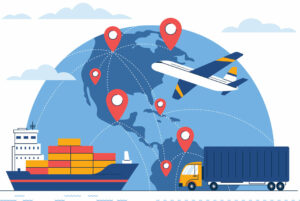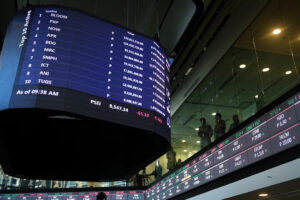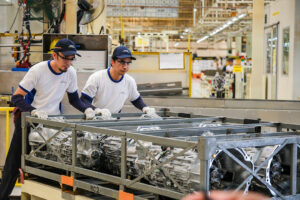Playing God with tariffs

“I’m telling you, these countries are calling us up, kissing my ass,” Donald Trump, US President, told his fellow Republicans at a dinner on Tuesday, April 2 (according to the Philippine Star on April 10).
What’s the crass “ass-licking” braggadocio all about?
At his inaugural address on Jan. 20, Trump pledged to “immediately begin the overhaul of our trade system to protect American workers and families. Instead of taxing our citizens to enrich other countries, we will tariff and tax foreign countries to enrich our citizens,” he said (whitehouse.gov/, retrieved Feb. 4, 2025).
On April 2, Trump declared a national emergency to address what he described as a “large and persistent US trade deficit,” enabling him to invoke presidential powers in an emergency, to impose the initial 10% tariff on all imports to the US, and then the additional reciprocal tariffs based on the US trade deficits per country to be imposed starting April 9. (Politico, retrieved April 3, 2025).
These tariff-increase announcements prompted retaliation from trade partners and triggered a stock market crash. The Wall Street Journal pointed out that across April 3 and 4, US stocks lost $6.6 trillion in value, their largest two-day loss in history by a margin of $2.2 trillion. Of course, the tumble in the capital and financial markets frightened not only the 57 countries charged with increased tariffs, but the global market players as well as the small developing countries that wrongly, seemed unaffected.
Politico reported that Treasury Secretary Scott Bessent tried to change Trump’s mind about the tariffs, warning him that the stock market would continue to decline unless he changed course. On April 9, Trump turned 180 degrees and announced that reciprocal tariffs above the base 10%, which had gone into effect that morning, would be paused for 90 days for all countries except China. China’s minimum tariff rate was increased to 145%, while imports from all other countries were sustained at the 10% baseline tariff (Wall Street Journal, April 9). Other global tariffs on products like cars, steel, and aluminum remained in effect.
And indeed, the affected countries (some, at least), came calling on Trump to “kiss-ass,” and try to negotiate for solutions to their increased tariffs for trading with the US. Time Magazine (“Nothing Is Certain but Uncertainty: How the World Is Reacting to Trump’s Tariff Reversal,” April 11) describes “how countries around the world have begun responding to the whiplash”:
Bangladesh. The US is the biggest export market for Bangladesh, which had been hit hard by a 37% tariff. “We will continue to work with your administration in support of your trade agenda,” Interim leader Muhammad Yunus said.
Brazil. The US is among Brazil’s biggest trading partners, second only to China. Trump imposed a 25% tariff on steel — a key export for Brazil, and 10% on other products. Brazil will negotiate with the US on the increased tariffs, at the same time, the country plans to expand its trade partnerships with other countries.
Cambodia. Faced with a 49% “reciprocal” tariff, Cambodia offered to reduce its tariff on 19 categories of US imports from 35% to 5%. Last year, Cambodia exported $9.9 billion in goods to the US, around 38% of the country’s total exports.
European Union. The EU had voted in favor of retaliatory tariffs on $23 billion in goods in response to Trump’s previously announced 25% tariffs on steel and aluminum — which remain in effect. The EU faced a 20% “reciprocal” tariff — which is now a baseline 10% tariff during the pause — on top of the metals tariff and a separate 25% tariff on cars and car parts. “If negotiations are not satisfactory, our countermeasures will kick in,” EU President Ursula von der Leyen said.
Germany. Will be united with the stand of the EU.
Greece. Prime Minister Kyriakos Mitsotakis hopes for a “win-win” solution between the EU and the US, as Greece is a member of the EU. “(But) as far as Greece is concerned, we have a strategic partnership with the US. I have worked with President Trump before and I can work very well with him again addressing regional challenges,” he said.
India. Wants to move swiftly on a trade deal with the US, after Trump temporarily reduced a 27% “reciprocal” tariff on the country to 10%.
Ireland. As a member of the EU, Ireland hopes for a group negotiated solution to the Trump tariffs, but “direct bilateral engagement with the United States is one of my priorities,” Simon Harris, the Tánaiste or second-ranking government leader of Ireland said.
Italy. Economy Minister Giancarlo Giorgetti said, “Within the G7 all of us outside the US spoke to try to calm the situation and find a way to bring the Trump administration to the table and to a reasonable position.”
Japan. Ryosei Akazawa, Japan’s Minister for Economic Revitalization, said about the tariffs on Japan’s metals and automobiles, key exports for the country: “We continue to express our strong concerns and strongly request that they be reviewed.” Finance Minister Katsunobu Kato ruled out using Japan’s US Treasury holdings as a bargaining chip in negotiations with the US.
Lesotho. Hit by a 50% “reciprocal” US tariff, the textile industry is the biggest private employer in the country, with around 30,000 people — nearly half of whom produce apparel for American brands. Lesotho hopes to negotiate for lower tariffs.
Malaysia. Has been hit with a 24% “reciprocal” US tariff, along with other members of ASEAN, including Vietnam and Thailand, among others. The 10 ASEAN member states and Timor-Leste agreed not to retaliate against Trump’s tariffs, and will “find a pragmatic and mutually advantageous solution for ASEAN in a strategic and tactful manner.”
Poland. Prime Minister Donald Tusk of Poland, an EU member, said, “The reaction to the tariff war was predictable. The stock market earthquake from Japan through Europe to America must be survived without nervous decisions.
Saudi Arabia. Commerce Minister Majid bin Abdullah al-Qasabi spoke with his Chinese counterpart on Thursday about strengthening bilateral trade, according to a statement by the Chinese ministry. Saudi Arabia faced a 10% “reciprocal” tariff on exports to the US.
Singapore. Singapore’s Monetary Authority said that it is “ready to work constructively with all partners, including the United States.” Singapore was hit with a 10% “reciprocal” tariff.
South Africa. Faced a 31% “reciprocal” tariff, it previously said it had no plans to retaliate against the US and will instead seek negotiations.
South Korea. Trade envoy Cheong In-kyo met with US Trade Representative Jamieson Greer last week about lowering tariff rates on South Korea. The US had imposed a 26% “reciprocal” tariff plus 25% tariffs on the auto industry, a key export.
Spain. Spain is a member of the EU, which was subject to a 20% tariff on exports to the US before the pause. “Expanding the trade relations that we have with other countries, including a partner as important as China, does not go against anyone,” Spanish Agriculture Minister Luis Planas said.
Taiwan. The bulk of Taiwan’s trade surplus with the US is in its export of semiconductors, which accounts for around 40% of its total exports. Taiwan is willing to cut its tariff rate on US products from an average nominal rate of 6% to 0% to counter and lower the US 32% “reciprocal” tariff on Taiwan.
Thailand. As Thailand faced a 36% “reciprocal” tariff, Prime Minister Paetongtarn Shinawatra offered to increase imports of energy, aircraft and agricultural products from the US. Surplus American farm products would be processed in Thailand, and then re-exported as higher-value products.
United Arab Emirates. The UAE, who is one of the world’s top 10 oil producers, will consider a bilateral free-trade agreement with the EU after the 10% “reciprocal” tariff imposed by the US.
United Kingdom. The UK will continue to “coolly and calmly” approach negotiations with the US, a spokesperson for Downing Street said last week.
Vietnam. The two countries exchanged nearly $150 billion in goods last year. The US is the biggest export market for Vietnam. Trump claims that Vietnam had earlier offered to cut its tariff rates on US goods to 0%, but he said the offer was not enough.
But no ass-kissing, no begging to negotiate, for China.
US tariffs on China total 145% — the 125% rate announced last week on top of an existing 20% tariff. China “firmly opposes” the US tariffs and vows to continue with countermeasures. “There is no winner in a trade war, and that China does not want a trade war,” He Yongqian, a commerce ministry spokesperson, said. “China is open to dialogue with the US but it must be conducted on an equal basis with mutual respect. We do not provoke trouble, nor do we fear trouble,” he said.
China has also filed a complaint against the US with the World Trade Organization (WTO), according to the People’s Daily. At a meeting of the WTO’s Council for Trade in Goods on Wednesday, China said US tariff policy violates WTO rules and called it a “typical act of unilateralism, protectionism, and economic bullying.”
Yes, it is only China, of its active trade partners, that has no fear of Trump’s bullying and threatening. China knows its own strength and consistency, and its firm focus on objectives for the good of the nation and its people.
The China Economic Journal brags that China is the world’s largest manufacturing industrial economy and exporter of goods. Manufacturing has been transitioning toward high-tech industries such as electric vehicles, renewable energy, telecommunications and IT equipment, and services have also grown as a percentage of GDP. China is the world’s largest high technology exporter. With 791 million workers, the Chinese labor force was the world’s largest as of 2021, according to The World Factbook.
And Trump thinks that with the imposition of higher tariffs on imported goods and services, the US will replace local demand for these items that an instant US manufacturing industrial economy would produce for whatever Americans and the world would need or want? Make America great again (MAGA)! But the entire world has been spoiled and abetted by cheaper, easily accessible goods made in China, Vietnam, Thailand, India, Bangladesh — by any country other than America.
Trump, playing God with his onerous tariffs on foreign goods and services, has alienated himself and the US from most of the world.
Amelia H. C. Ylagan is a doctor of Business Administration from the University of the Philippines.




